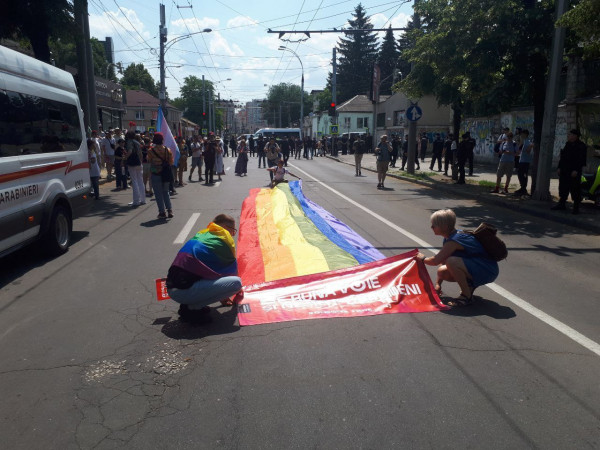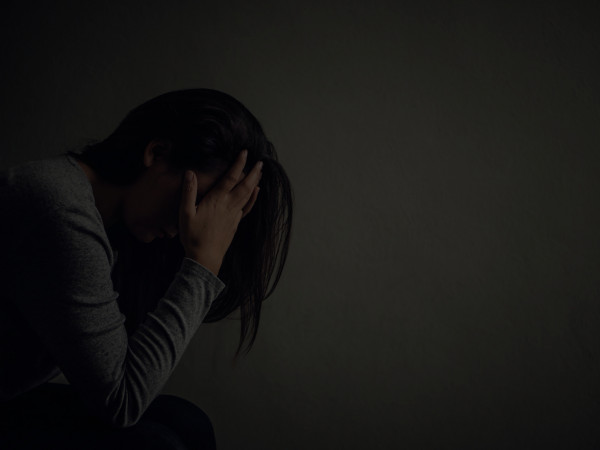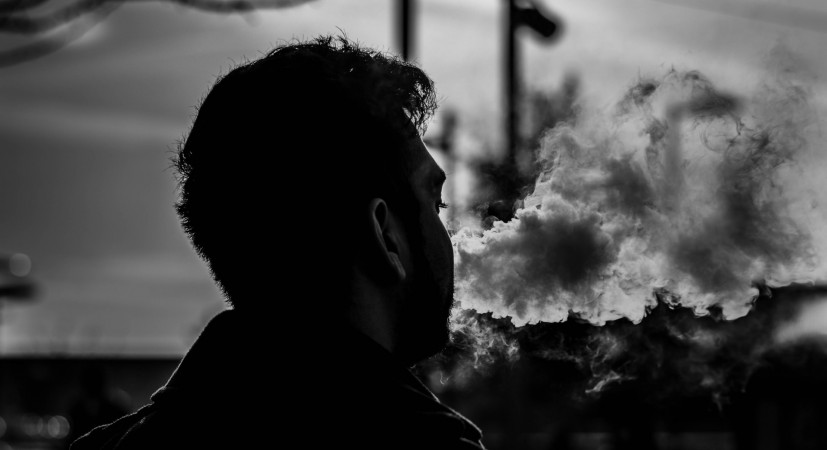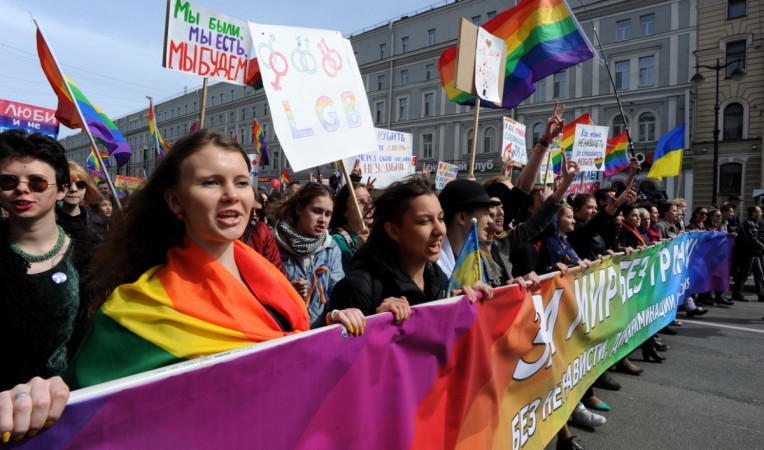Transgender insanların “vətəndaşlıq borcu”
Azərbaycanda müharibə və hərbiləşmə şəraitində transgender insanların “vətəndaşlıq borcu”
02/Jun/24
5716
“Citizenship Debt” of Transgender People amid Navigating War and Militarisation in Azerbaijan
Author: Sevinj Samadzade
In a country like Azerbaijan, where the perpetrators of heinous crimes against trans women often receive lenient sentences and get societal approval, the plight of being a transgender1 individuals, especially trans women, are to occupy the lowest rung of citizenship. Alongside women with disabilities, sex workers, and migrant women, trans women endure a precarious existence, employing various survival tactics while enduring the exploitation of their bodies and labour. To aspire to the status of a "decent" citizen, they must wage both material and moral battles, and in times of war, they are expected to demonstrate unwavering patriotism.
The relationship of transgender individuals with militarism and war has its visible and invisible sides. Globally, states use their militarised policing tactics to control the transgender bodies by portraying themselves as the only legitimate institution to recognise their legal and medical affirmation.2 Transgender subjects are forced to be acknowledged by the state, as this recognition delineates national borders and determines eligibility for official documents like passports and ID cards. However, this same recognition also dictates access to synthetic hormones crucial for many transitioning people, and this access is heavily regulated. Such regulation spans from border control measures to the routine policing of bodies in daily life. As a result, trans or gender-nonconforming individuals become active participants of reproduction of militarism that is widespread in the society.
The late summer of 2021 saw trans women taking to the streets of Baku, in protest following the brutal murder of trans woman Nuray, demanding justice.3 Following the protests, a coalition of trans women, activists, and legal experts united to strategize on securing justice for Nuray and demanding state to prevent similar (trans)femicides. However, amidst these efforts, online platforms became breeding grounds for hateful rhetoric targeting trans women, calling them “worthless”, specifically because they were assumed not to have any contribution to the 2020 Karabakh War. During these encounters, one of the trans women confessed to me that she had, in fact, willingly enlisted in the military and actively participated in the 2020 Karabakh war, concealing her gender identity. Unearthing such rare stories requires extensive investigation, yet collecting these accounts proves challenging, as they feel unsafe to share them. However, it was visible how this online backlash was fostering the development of trans nationalism, evident in online discussions where trans women emphasised the context of the Karabakh conflict and repeatedly invoked the memory of martyrs in their public speeches.
While discussions about military and war within the LGBTQI+ community often revolve around cisgender gay individuals’ experiences, information regarding trans women or non-binary individuals in the military or war remains scarce. When they have undergone feminization surgeries, such as breast augmentation, trans women are automatically not conscripted. Consequently, those who have not undergone such procedures or do not conform to conventional feminine appearances may find themselves to be drafted, a scenario most find undesirable, except in the context of war, where under the opium of nationalism, unexpected nuances emerge. Thus, not surprisingly, individuals like the one I encountered take pride in their military service, boosted by the validation it provides.
Nevertheless, in a society quick to justify war and post-war violence, trans individuals find themselves excluded from the category of "grievable," as Butler puts it,4 with all collective grievances directed only towards martyrs of the war. However, even the martyr Shaiq Kalbiyev, who died during the 2020 war, was excluded from the “grievable” category because of being gay. This bitter reality deemed acceptable by the oppressed masses, dictated by the state's biopolitics and necropolitics, a power that Foucault explains, managing and controlling life and death.5
To explore the relationship of trans individuals in Azerbaijan with war, militarization and patriotism, this article delves into the trans struggle for “decent” citizenship within the state's gender politics and questions if it can go beyond the fight for visibility and acceptance within the boundaries of national culture. Theoretical frameworks examining the state's gendered governance and its relationship with war are applied, drawing from existing literature. Some parts of the analyses are also based on discussions, interviews, and focus groups conducted with various queer communities and trans individuals in Azerbaijan.6
War and the "debt" of citizenship
Throughout history, wars have shaped societal perceptions of gender roles and belonging, perpetuating systematic insecurities among gendered bodies.7 Here the “gendered” refers to the process by which societal norms, expectations, roles, behaviours, and identities are constructed and differentiated based on perceived or assigned gender categories. Despite the evolution of wars in terms of causes, methods, and impacts, its gendered reproduction mechanism remains. Still persisting as a predominantly andro-centric activity, wars along with militarization strengthens the gendered normativity and patriarchal division of labour. Within the gendered hierarchy of bodies, feminised ones stay at the bottom, while they actively participate in social reproduction of the wars.
Peterson contends that the oppression of feminised bodies stems from the historical process of state formation, characterised by centralised political authority, militarization, and the legitimization of structural violence through elitist and masculinist ideologies.8 She highlights that this model traces back to ancient Greece, where the Athenian Polis State institutionalised gendered labour divisions based on one’s participation in warfare, relegating women to the sidelines of citizenship due to their perceived detachment from combat roles.
Modern nation-states continue to reproduce similar power dynamics across gender, race, and class lines, excluding those who do not conform to confined citizenship ideals. Trans individuals exist in a liminality, challenging the foundation of the war system by their very existence. However, then they often find themselves constrained by rigid binary understandings of femininity and masculinity, sometimes compelled, or coerced into participating in warfare to gain recognition or acceptance, to be regarded as a citizen just like, in Ancient Greece.
In essence, the legacy of war perpetuates gendered hierarchies, including hegemonic masculinities that are fulfilling the desires of the ruling class and that oppress all other gendered and classed citizens, marginalising those who do not fit neatly within prescribed gender norms and citizenship frameworks. Thus, when those in hegemonic power start the war, it becomes an obligatory debt for the citizens to embrace the war as theirs. To address this, trans activist from Azerbaijan, Vusala asks a relevant question in her essay: “One last thing remains. If the state, its system and law do not take us into account, why should we sacrifice our lives to ensure its continued existence?! If the system is theirs, why the war is ours?!”9
Similar to how the neoliberal state imposes a material debt on its citizens through credits and loans, it also demands a moral debt, including support for its populist wars when necessary. This insistence on unified support serves as a test for determining who qualifies as a "decent" citizen and who does not. Consequently, anti-war activists in Azerbaijan find themselves unable to meet this criterion and are branded as traitors or unworthy of citizenship.10 Conversely, the trans communities are compelled to exhibit fervent nationalism and pro-war stances to validate their "decent" citizenship. For them, survival hinges on aligning with the state's war agenda—making “their war ours” as it becomes imperative struggle for existence. Yet the ones who pay the “debt” are not free from it and instead are striving in the permanent “debt” to its police, to its national leaders and to its ruling class.
Surviving (war) as trans citizens
Trans citizenship means surpassing the confines set by birth certificates that rigidly define gender with assigned sex, as well as challenging the gender norms enforced by disciplining institutions like family, media, and education. However, the focus of most historical fights for transgender rights has centred on advocating for equal rights, rather than challenging the power structures, which, in the context of the military, often translates to equal participation in military and war activities.11 Consequently, the pervasive state biopolitics of war continues to dictate the conditions under which transgender individuals can live or die. For example, during the 2003 US invasion of Iraq, the stance on the involvement of transgender individuals in the military shifted, pulling some into the fold of national service while pushing others towards perilous situations.12 Later juggling between Trump administration's ban on transgender individuals in the military and its reversal under the Biden administration, demonstrated how trans people are caught amidst political militarization and securitization, often overshadowing their actual needs and demands.13
In Azerbaijan, the context for trans individuals starkly contrasts with that other so called liberal-democratic context. Here, trans people are denied both equal rights and what could be termed as "decent" citizenship. Merely being transgender in Azerbaijan automatically relegates one to a state of marginalisation and exclusion from the privileges associated with "decent" citizenship. Recognition of a trans person's identity is contingent upon completing legal and medical transitions, which necessitate conforming to certain prescribed physical and biological standards of the assigned or desired gender. Those who deviate from binary gender norms or refuse to undergo these stringent biological and legal regulations are exempted from recognition. However, the medical professionals in Azerbaijan typically refuses to perform gender-affirming surgeries or hormonal therapies, leaving many trans individuals with no choice but to seek such procedures abroad, often in countries like Turkey.14 These financial and logistical barriers further compound the challenges faced by trans people in accessing essential healthcare and legal services.
Transitioning legally can be particularly challenging for transgender men due to bureaucratic hurdles they face connected with military service. Although there are numerous legal gaps in regulating this process, they are often required to undergo a military check-up to validate their masculinized body to change the name and gender on their ID card. Yet, in order to undergo this check-up, they must first change their identity card. Aida Mirzayeva, a social worker, describes this paradox as a bureaucratic barrier deliberately hindering trans men from achieving their legal transition.15
Trans women on the other hand, are disproportionately compelled to turn to sex work, an exploitative practice given the country's context where their bodies and labour are further extracted in an environment fraught with illegality and police control. This exposes them to significant risks, including threats of incarceration, hate crimes, femicides, drug abuse etc. Additionally, the lack of agency, representation, and discourse surrounding sexuality and gender exacerbates the isolation of certain transgender communities from the emerging urban queer networks.
In the current political and economic landscape of Azerbaijan, a significant portion of the population is grappling with extreme precarity, navigating their lives in a state of constant survival mode. However, for transgender individuals, particularly trans women, this reality entails an additional layer of struggle. As dominant groups across different identities and classes intensify their oppression during such precarious times, transgender women find themselves at the bottom of the hierarchy, facing heightened marginalisation and violence. The dynamics of survivability are further influenced by various factors such as community support, familial assistance, involvement in activist circles, socioeconomic status, and geographic location, which are revealed during the focus groups conducted with the community in Azerbaijan.16 Consequently, the strategies employed for survival during wartime and post-war context vary, ranging from conforming to societal expectations of masculinity to evading military service, to resorting to tactics like bribery or seeking psychiatric exemptions.
Resisting beyond visibility
When trans women took to the streets in the summer of 2021, to protest for Nuray, they were on the brink of politicising their cause and asserting their rights. Amidst these actions, narratives of resistance and solidarity emerged as beacons of hope. However, the government responded by instilling fear and spreading paranoia among them, threatening a recurrence of the oppressive measures witnessed in 201717, including incarceration and humiliations, which consequently hindered their visibility. It reached a tragic turn when few months after, the key ally of the community, one of the outspoken trans and gay rights activist, journalist Avaz Hafizli was brutally murdered, further increasing the grievances.18
Under the weight of constant danger, trans visibility becomes a double-edged sword. On one hand the visibility is needed to express the bodily autonomy and make the demands political, on the other hand, the struggle should be beyond body, as the panopticon of the oppressive state and society effectively disciplines and punishes such visibilities. Thus, trans liberation must go beyond emphasising visibility within a national culture or privileging the medical complex as a site for producing transgender citizens.19
The visibility approach on its own might reproduce privileges and double the “debt” of citizenship for trans individuals. By aligning themselves with nationalist and pro-war ideologies, trans individuals may seek validation and acceptance as "decent" citizens, despite the inherent contradictions and injustices of such a system. This perpetuates a cycle of oppression and exploitation; wherein trans people are compelled to uphold the very systems that oppress them in order to survive.
Ultimately, building resistance among trans people in Azerbaijan involves challenging not only the material conditions of oppression, but also the ideological frameworks that justify and perpetuate their oppression, which requires feminist, queer and class consciousness. By politicising the experiences and agency of trans individuals, liberation from state’s gendered and militaristic ideologies will be possible.
1. In this article I am using “transgender” and “trans” terms interchangeably as concepts that deconstruct the rigid categories and binaries related to gender and sexuality. "Trans" is often used as an abbreviation for "transgender" and both terms are often used to describe individuals whose gender identity differs from the sex they were assigned at birth. While I use both terms to challenge the normative language practices, I also acknowledge that different individuals may have preferences for how they are referred to.
2. Toby Beauchamp, ‘Thinking Militarism And Exposure Through Transgender Studies’, 5 September 2012, https://www.societyandspace.org/articles/thinking-militarism-and-exposure-through-transgender-studies
3. Ismi Aghayev, ‘After Alleged Killing, Transgender Protesters Rally in Baku’, OC Media (blog), 26 August 2021, https://oc-media.org/after-alleged-killing-transgender-protesters-rally-in-baku/.
4. See Judith Butler, Frames of War: When Is Life Grievable? (Verso, 2009).
5. See ‘Biopolitics, Necropolitics, Cosmopolitics: Feminist and Queer Interventions’, Routledge & CRC Press, accessed 27 March 2024, https://www.routledge.com/Biopolitics-Necropolitics-Cosmopolitics-Feminist-and-Queer-Interventions/Quinan-Thiele/p/book/9780367714895.
6. The interviews and focus groups were conducted in Azerbaijan during April-May 2023 by the activist and psychologist Aysel Budag. She managed to talk to around 22 people, from the broader LGBTQ+ community, from which I specifically choose the experiences and narratives of trans or gender non-conforming individuals for the purpose of this article.
7. Joshua S. Goldstein, War and Gender: How Gender Shapes the War System and Vice Versa (Cambridge University Press, 2003).
8. V. Spike Peterson, Gendered States: Feminist (Re)Visions of International Relations Theory (Lynne Rienner, 1992).
9. Vusala Haciyeva, ‘“Us” in “Their” War’, Feminist Peace Collective, 23 December 2021, https://www.feministpeacecollective.com/en/post/us-in-their-war.
10. Bahruz Samadov, ‘Perspectives: Government Campaign Targets Azerbaijan’s Anti-War Activists | Eurasianet’, accessed 5 February 2024, https://eurasianet.org/perspectives-government-campaign-targets-azerbaijans-anti-war-activists.
11. Heather M. Simmons, ‘Trans Liberation under Neoliberal Governmentality: An Argument against Rights-Based Activism’, The Canadian Journal of Human Sexuality 32, no. 2 (September 2023): 221–28, https://doi.org/10.3138/cjhs.2023-0007.
12. Nicholas L. Clarkson, ‘States of Incoherence: Biopolitics and Transnormative Citizenship - ProQuest’, accessed 27 March 2024, https://www.proquest.com/openview/ef4783744eb2f3ddbf5f68db27dca323/1?cbl=18750&pq-origsite=gscholar&parentSessionId=K2iXxAzAO0edY1h2%2FUDRDmP2YSt%2BjlzIDiUiy8OK%2B6A%3D.
13. Dean Spade and Aaron Belkin, ‘Queer Militarism?!: The Politics of Military Inclusion Advocacy in Authoritarian Times’, GLQ: A Journal of Lesbian and Gay Studies 27, no. 2 (1 April 2021): 281–307, https://doi.org/10.1215/10642684-8871705.
14. Saadat Abdullazade, ‘Trans Women’s Right to Health and Access to Medical Services in Azerbaijan’, Feminist Peace Collective, accessed 27 March 2024, https://www.feministpeacecollective.com/en/post/trans-women-s-right-to-health-and-access-to-medical-services-in-azerbaijan.
15. Sevinj Samadzade, Interview with a social worker Aida Mirzayeva, 25 March 2024.
16. Aysel Budag, Focus Group Discussions, and Interviews with LGBTQ+ activists, communities, and individuals in Azerbaijan, 2023.
17. In 2017, the police arbitrarily detained many trans individuals subjecting them to incarceration, torture, beatings, forced medical examinations, and harassment.
18. Parvana Bayramova and Aziza Goyushzade, ‘Azerbaijan Mourns Tragic Killing of Gay Rights Activist and Reporter’, Voice of America, 24 February 2022, https://www.voanews.com/a/6457639.html.
19. Ryan Johnson, ‘Trans Futures: A Consideration of Transgender Youth, Transgender Visibility, and Transgender Citizenship’ (The Ohio State University, 2015), http://hdl.handle.net/1811/68924.
Bibliography
Abdullazade, Saadat. ‘Trans Women’s Right to Health and Access to Medical Services in Azerbaijan’. Feminist Peace Collective. Accessed 27 March 2024. https://www.feministpeacecollective.com/en/post/trans-women-s-right-to-health-and-access-to-medical-services-in-azerbaijan.
Aghayev, Ismi. ‘After Alleged Killing, Transgender Protesters Rally in Baku’. OC Media (blog), 26 August 2021. https://oc-media.org/after-alleged-killing-transgender-protesters-rally-in-baku/.
Bayramova, Parvana, and Aziza Goyushzade. ‘Azerbaijan Mourns Tragic Killing of Gay Rights Activist and Reporter’. Voice of America, 24 February 2022. https://www.voanews.com/a/6457639.html.
Beauchamp, Toby. ‘Thinking Militarism And Exposure Through Transgender Studies’, 5 September 2012. https://www.societyandspace.org/articles/thinking-militarism-and-exposure-through-transgender-studies.
Budag, Aysel. Focus Group Discussions and Interviews with LGBTQ+ activists, communities and individuals in Azerbaijan, 2023.
Butler, Judith. Frames of War: When Is Life Grievable? Verso, 2009.
Clarkson, Nicholas L. ‘States of Incoherence: Biopolitics and Transnormative Citizenship - ProQuest’. Accessed 27 March 2024. https://www.proquest.com/openview/ef4783744eb2f3ddbf5f68db27dca323/1?cbl=18750&pq-origsite=gscholar&parentSessionId=K2iXxAzAO0edY1h2%2FUDRDmP2YSt%2BjlzIDiUiy8OK%2B6A%3D.
Goldstein, Joshua S. War and Gender: How Gender Shapes the War System and Vice Versa. Cambridge University Press, 2003.
Haciyeva, Vusala. ‘“Us” in “Their” War’. Feminist Peace Collective, 23 December 2021. https://www.feministpeacecollective.com/en/post/us-in-their-war.
Johnson, Ryan. ‘Trans Futures: A Consideration of Transgender Youth, Transgender Visibility, and Transgender Citizenship’. The Ohio State University, 2015. http://hdl.handle.net/1811/68924.
Peterson, V. Spike. Gendered States: Feminist (Re)Visions of International Relations Theory. Lynne Rienner, 1992.
Routledge & CRC Press. ‘Biopolitics, Necropolitics, Cosmopolitics: Feminist and Queer Interventions’. Accessed 27 March 2024. https://www.routledge.com/Biopolitics-Necropolitics-Cosmopolitics-Feminist-and-Queer-Interventions/Quinan-Thiele/p/book/9780367714895.
Samadov, Bahruz. ‘Perspectives: Government Campaign Targets Azerbaijan’s Anti-War Activists | Eurasianet’. Accessed 5 February 2024. https://eurasianet.org/perspectives-government-campaign-targets-azerbaijans-anti-war-activists.
Samadzade, Sevinj. Interview with a social worker Aida Mirzayeva, 25 March 2024.
Simmons, Heather M. ‘Trans Liberation under Neoliberal Governmentality: An Argument against Rights-Based Activism’. The Canadian Journal of Human Sexuality 32, no. 2 (September 2023): 221–28. https://doi.org/10.3138/cjhs.2023-0007.
Spade, Dean, and Aaron Belkin. ‘Queer Militarism?!: The Politics of Military Inclusion Advocacy in Authoritarian Times’. GLQ: A Journal of Lesbian and Gay Studies 27, no. 2 (1 April 2021): 281–307. https://doi.org/10.1215/10642684-8871705.
Powered by Froala Editor



